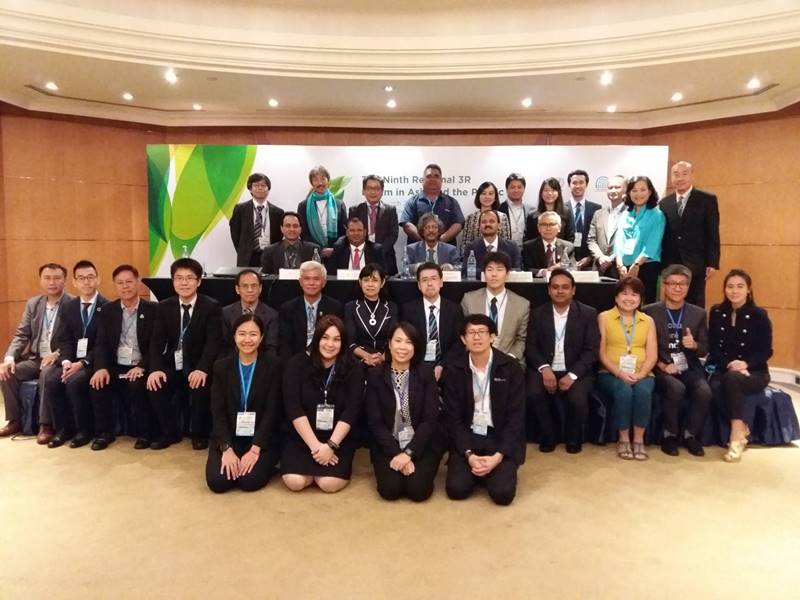News
GC attends the “Thailand Next Episode #3: Circular Economy, Innovation for the Future” event
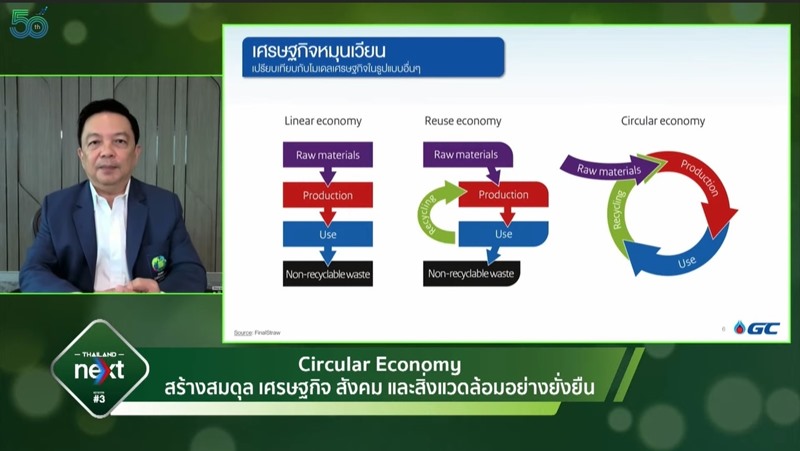
On October 28, 2021, Dr. Kongkrapan Intarajang, Chief Executive Officer of GC, was honored to give a special lecture at the “Thailand Next Episode #3: Circular Economy, Innovation for the Future” event organized by Nation Multimedia Group on the occasion of their 50th anniversary to exchange information and operational guidelines on sustainability following to the principles of the Circular Economy between the public and private sectors.
During the event, Adjunct Prof. Dr. Anek Laothamatas, Minister of Higher Education, Science, Research, and Innovation, said that Thailand aims to become a developed country by 2037 by adopting a Bio-Circular-Green (BCG) economy involving various industries that optimize resource utilization, including creative eco-tourism.
Dr. Kongkrapan gave a special lecture during the “Special Talk: Circular Economy, Creating a Sustainable Economic, Social, and Environmental Balance” session, explaining that GC believes in and is committed to operating its business based on sustainable corporate development incorporating environment, social, and governance (ESG) criteria and balancing business growth with sustainable operations. The circular economy is one of the key driving mechanisms through three main strategies – 1. Step Change: Strengthen your home by increasing efficiency and enhancing competitiveness; 2. Step Out: Seek opportunities to grow into international leaders by focusing on high value and low carbon businesses; and 3. Step Up: Enhance operations to maintain leadership in sustainability.
In addition, GC has set goals to implement its decarbonization plan to achieve carbon neutrality by 2050, in line with the Paris Agreement reducing greenhouse gas (GHG) emissions to zero through three key approaches – 1. Efficiency-Driven: 20% reduction in GHGs by improving current and future production processes to minimize emissions while adopting new technologies; 2. Portfolio-Driven: 25% reduction in GHGs through future business restructurings with a focus on low carbon businesses that are environmentally friendly; and 3. Compensation-Driven: 55% reduction in GHGs with residual carbon offsets using a variety of approaches and high-performance technologies.
Dr. Kongkrapan also emphasized that regardless of size, every organization should focus on sustainability. Thailand will only be successful in achieving its sustainable development goals with cooperation from all sectors.
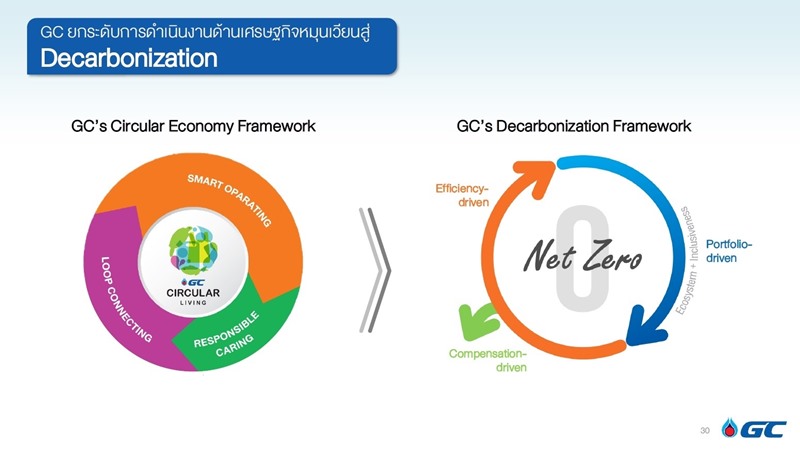
News
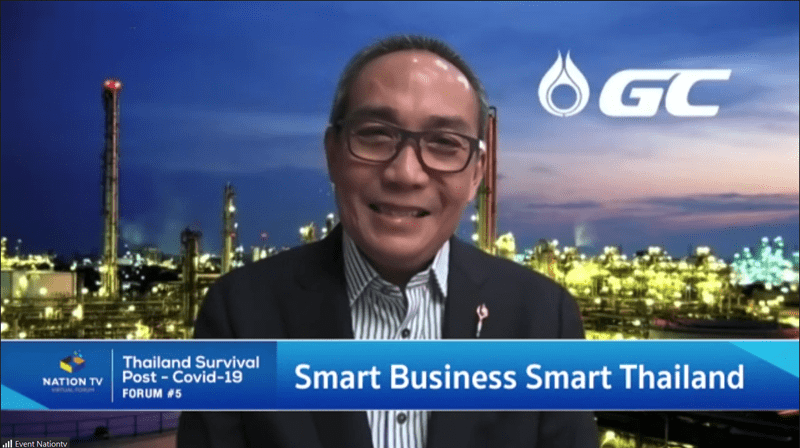
GC บรรยายในงานสัมมนา “Thailand Survival Post-COVID-19 #5: เจาะนวัตกรรม เปลี่ยนโฉมหน้าธุรกิจ” ภายใต้หัวข้อ “Smart Business Smart Thailand”
Read More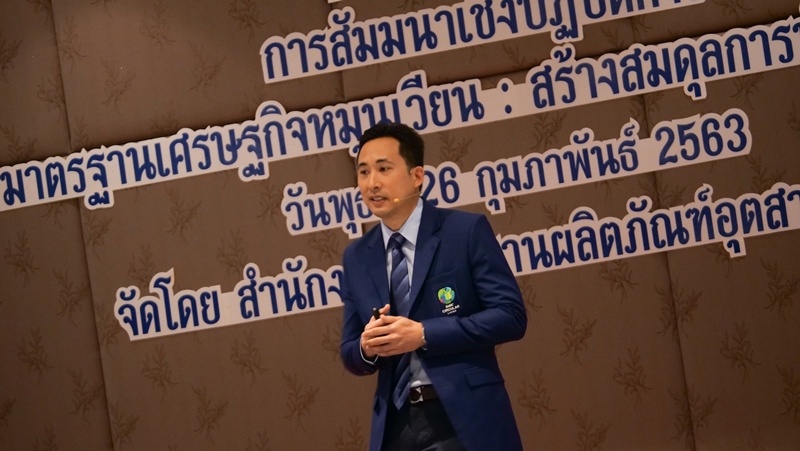
GC Promotes the Circular Economy at the Thai Industrial Standards Institute (TISI) Seminar to Establish Standards for a Circular Economy for Sustainability
Read More